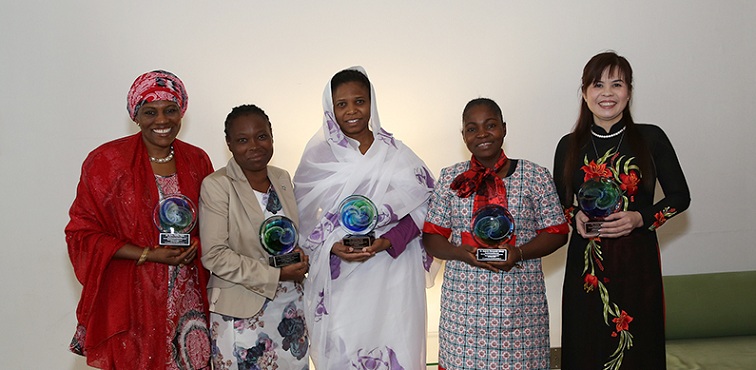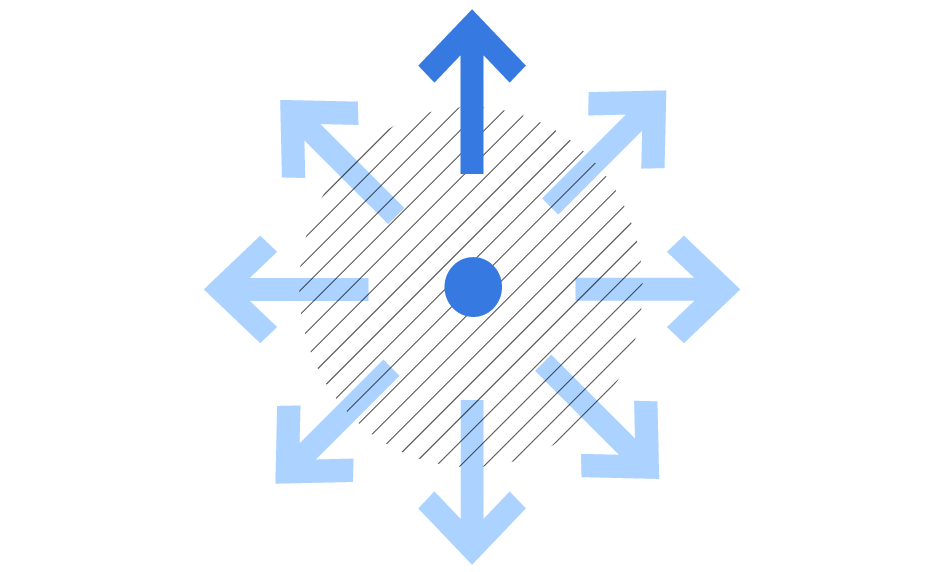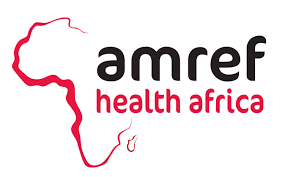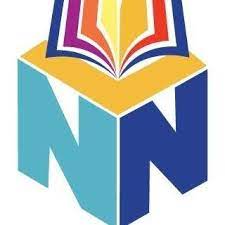5 women scientists tell their stories of hard-earned success

The winners of the 2015 Elsevier Foundation Awards for Women Scientists in the Developing World: Rabia Sa’id, PhD (Nigeria); Mojisola Usikalu, PhD (Nigeria); Nashwa Eassa, PhD (Sudan); Mojisola Adeniyi (Nigeria); and Dang Thi Oanh, PhD (Vietnam) — Photos by Alison Bert
Winners of the Elsevier Foundation Awards for Women Scientists in the Developing World overcome major challenges in their pursuit of math and physics.
Growing up in a tribal village in Vietnam, Dang Thi Oanh lived in a house with a roof made of leaves and no electricity. Motivated by more than a passion for learning, she would study by the light of an oil lamp:
I had to escape the hunger and poverty. If you study, you don’t have to work on the farm; you have don’t have to gather dry wood in the jungle (to burn for heat and cooking).
Dr. Oanh, now Head of the Division of Science-Technology and International Cooperation at Thái Nquyên University of Information and Communications Technology, was one of five winners of the 2015 Elsevier Foundation Award for Women Scientists in the Developing World. They took the stage last week at the AAAS Annual Meeting in San Jose, California, sharing their stories and stressing the need to encourage young women to pursue careers in science and math.
The awards are presented annually in conjunction with the Organization for Women in Science for the Developing World (OWSD) and TWAS, the World Academy of Sciences to recognize the accomplishments of five early-career scientists. This year’s award was for physics and mathematics.
The prize included $5,000 and all-expenses paid attendance at the AAAS meeting. In addition, the Abdus Salam International Centre for Theoretical Physics (ICTP), based in Trieste, Italy, offered each of the winners’ free attendance and accommodation at one of its workshops or conferences.
An additional $2,500 for each winner was donated by Martha Darling, a retired Boeing executive, and husband Professor Gil Omenn, MD, PhD, Director of the Center for Computational Medicine and Bioinformatics at the University of Michigan and past president of AAAS. “These women are inspirational,” Darling said after the ceremony. “They’re doing significant research, mentoring their students, and helping to create stronger institutions in their countries.”
The recipients – from Nigeria, Sudan and Vietnam – all said the award money will go a long way to helping them pursue their research and help their students build careers. Afterwards, they told their stories to a reporter from NPR. Even though they have succeeded to become professors and researchers, two of their universities only have electricity for four hours a day, and while they are invited to present their work at international conferences, often they cannot afford to go.
Here, they tell more of their stories.
- Alison Bert, “5 women scientists tell their stories of hard-earned success”, Elsevier Connect, Feb 2015




















